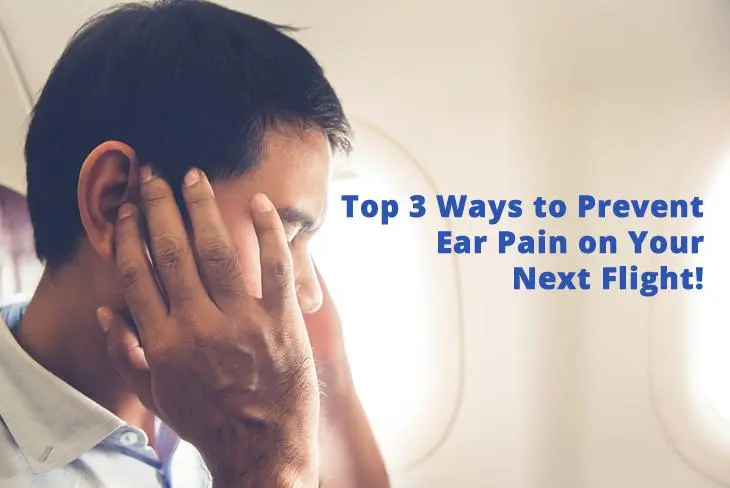Flying can be difficult for your ears. Problems that arise during or after flying are helped by understanding them. There are some easy tips that can prevent them all together.
Most problems are related to the Eustachian tube. It is a paired structure (one for each ear) that connects the middle ear (behind the eardrum) to the nasopharynx (a recess behind your nasal cavity at the top of your throat). The Eustachian tube acts as a valve to regulate pressure in the middle ear. The valve is opened by moving particular muscles in the head and neck. Swallowing, chewing, and yawning activate these muscles.

If the Eustachian tube stays closed during a major change in ambient pressure, trauma occurs in the middle ear. Major changes in pressure occur during ascent and descent during flight. Symptoms include ear pain/pressure, hearing loss, tinnitus, and dizziness.
Vestibular problems also occur during flying due to turbulence. There are limited visual cues in the cabin of a commercial jet. This can be disorienting. Coupled with significant forces exerted on the vestibular system during turbulence may cause motion sickness in sensitive individuals. These same individuals will often suffer from sea sickness and car sickness as well. The stimulation can leave the vestibular system sensitive even after the flight, resulting in the illusion that one is still on the plane.
Eustachian tube problems can be prevented by following these guidelines, especially during descent.
- Make sure you are awake. This keeps you aware of any changes in pressure.
- Chew gum. This makes sure you are chewing and swallowing.
- If you still feel discomfort, pinch your nose and blow against your closed nostrils gently. You will feel your ears equalize. This will be accompanied by an increased awareness of ambient sound.
If these measures do not work, you may need to see your doctor about a nasal decongestant or even placement of a ventilation tube in your eardrum.
Vestibular issues can be prevented as well. A full night’s rest prior to your flight will decrease vestibular sensitivity. Make sure you are well hydrated. Over the counter vestibular suppressants such as Bonine or Dramamine can be taken before the flight to prevent vestibular issues if you have suffered them before.
If these measures do not work, you may need to see your doctor about further vestibular testing and treatment. At Dallas Ear Institute, we treat many ear issues related to flying. Call (469) 803-5555 to schedule an appointment.


